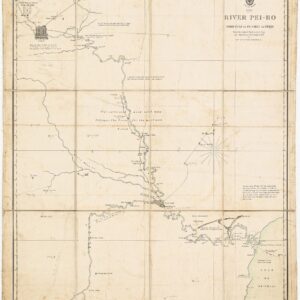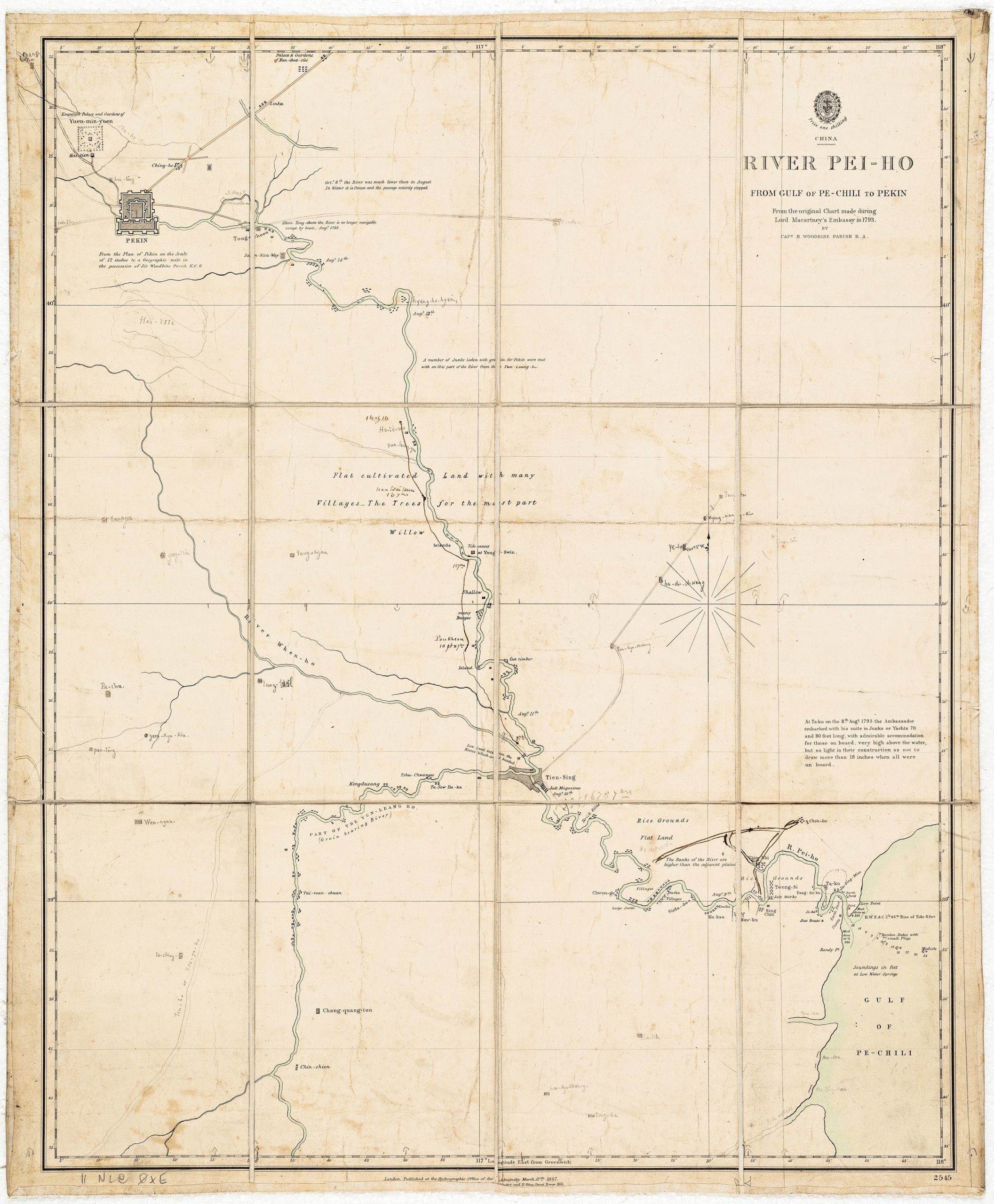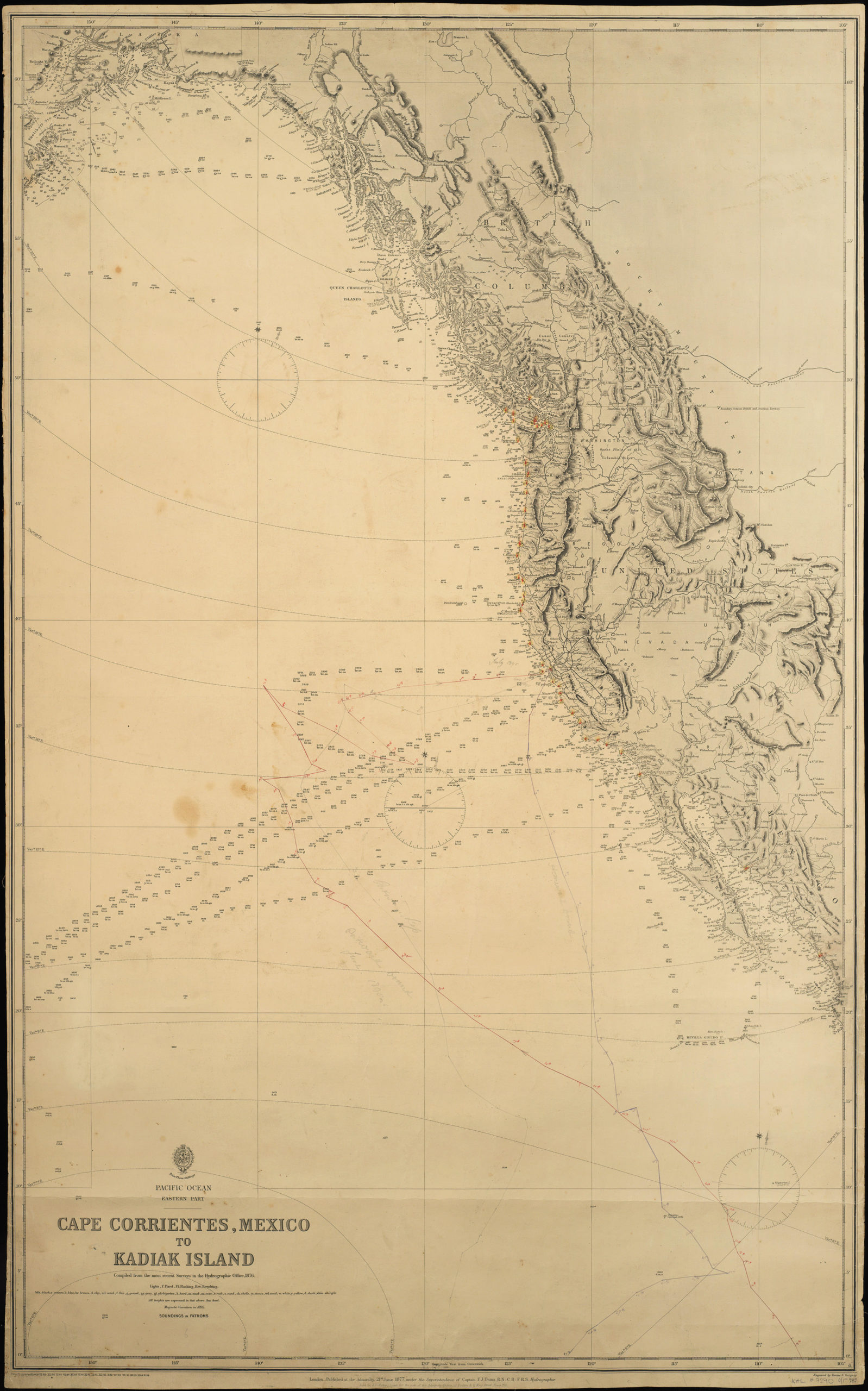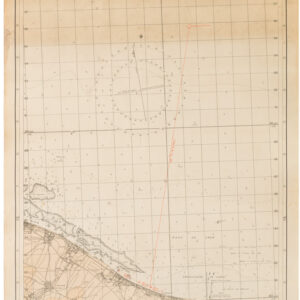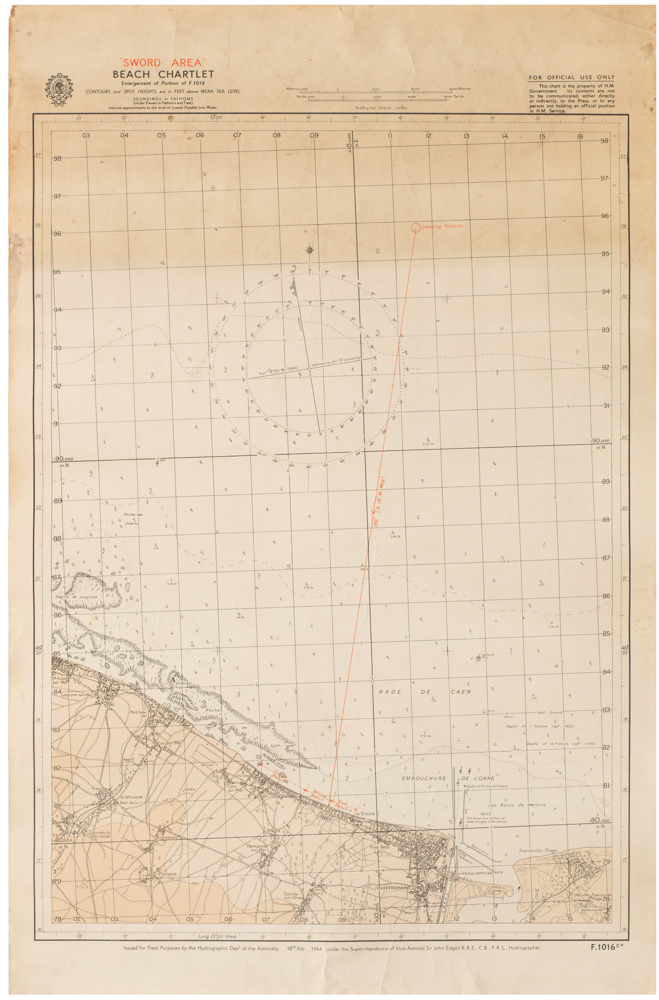The United Kingdom Hydrographic Office is the British Admiralty’s agency for creating and supplying hydrographic and marine geospatial data. The Admiralty’s first Hydrographer was Alexander Dalrymple, who was appointed in 1795 on the order of King George III. Among his tasks was cataloguing the existing charts into a royal cartographic library. Dalrymple was succeeded in 1808 by Captain Thomas Hurd, under whose stewardship the department was given permission to sell their maps to the public. By 1825, more than seven hundred different charts and coastal views were for sale from the Hydrographic Office.
In general, hydrographers have played a key role in the development of cartography. It was hydrographers who first began calculating the effects of magnetic declination on navigation, and hydrographers who drew the first maps that tried to compensate for this effect in their rendition. The British Hydrographic Office introduced a number of important features, such the use of an eponymous scale or the inclusion of tide tables in nautical charts, which soon became standard features. The Hydrographic Office also mounted or co-sponsored along list of expeditions across the globe, including Charles Darwin’s voyage with the HMS Beagle.
-
-
Add to cartQuick View
- Asia
River Pei-Ho From Gulf of Pe-Chili to Pekin
- $1,900
- Admiralty Chart of the Hai River with manuscript additions suggesting use in the field during the Second Opium War.
-
Add to cart
-
-
Add to cartQuick View
- California, Pacific Northwest - Hawaii - Alaska
Pacific Ocean. Eastern Part. Cape Corrientes, Mexico to Kadiak Island. Compiled from the most recent Surveys in the Hydrographical Office. 1876. London, 21 June 1877
- $900
- Large, detailed sea chart of the West Coast of North America with added notations and sighting information.
-
Add to cart
Archived
- Europe, World War I and World War II
“SWORD AREA” BEACH CHARTLET. Enlargement of Portion F.1016
- World War II hydrographic chart used for planning the British D-Day landing at Sword Beach in Normandy.
- Add to cartQuick View
